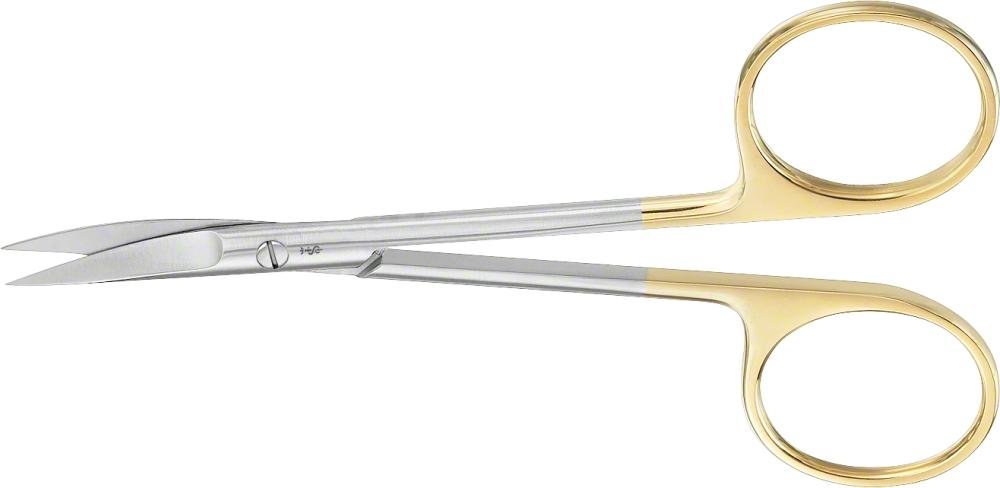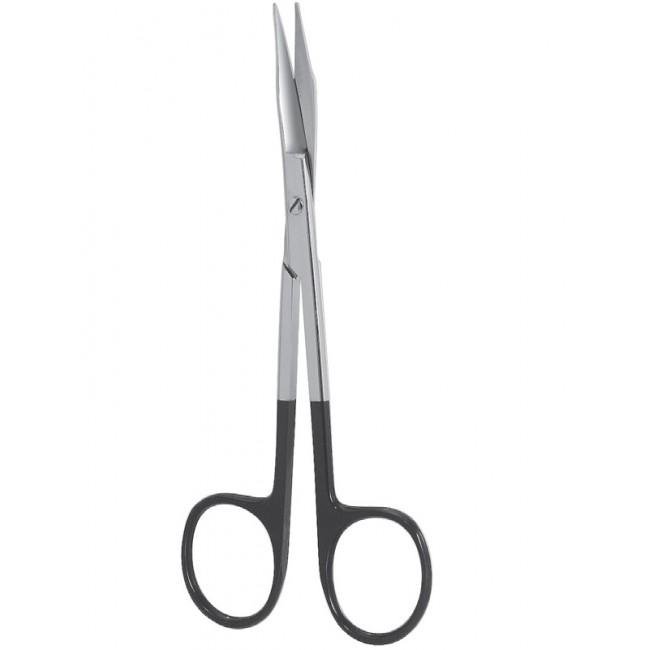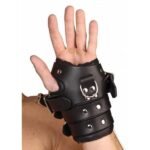Tools make all the difference when it comes to precision tasks that require meticulous accuracy. Among the essential instruments used across various professional fields, delicate iris scissors stand out due to their fine craftsmanship and unparalleled precision. While the casual observer may consider scissors a simple cutting tool, professionals in healthcare, crafting, or science recognize the importance of having the correct type of scissors for the job. This article delves into the world of delicate scissors, exploring their uses, advantages, and specific features, emphasizing iris scissors.
Introduction to Delicate Scissors
Delicate scissors, as the name suggests, are designed for tasks requiring precise cuts with minimal force. These scissors are characterized by their small, finely honed blades, which allow users to perform intricate tasks with greater control. From trimming delicate fabrics in fashion design to conducting microsurgical procedures in a medical setting, the applications of these tools are vast and varied.
Key Features of Delicate Scissors
Sharp, Fine Blades: Unlike regular scissors, delicate scissors have blades specifically designed for accuracy rather than brute strength. These blades are often made from high-grade stainless steel, ensuring durability and corrosion resistance.
– Ergonomic Design: These scissors frequently feature ergonomically designed handles to prevent hand fatigue during long periods of use. Comfort is essential when working on detailed tasks that require sustained focus.
– Size and Weight: Delicate scissors are typically small and lightweight, enhancing precision by allowing users to maneuver them easily. Their compact design ensures control, which is crucial when working with sensitive materials or tissue.
Rounded or Pointed Tips: Delicate scissors can have either pointed or rounded tips, depending on their intended use. Pointed tips are essential for piercing materials or tissues, while rounded tips reduce the risk of accidental damage.
Popular Uses of Delicate Scissors
1. Surgical Applications: One of the most common uses of delicate scissors is surgery, where precision is crucial. They are ideal for cutting sutures, tissues, and other fragile body parts without causing unnecessary damage.
2. Crafting and Sewing: Fashion designers and tailors frequently rely on delicate scissors to cut fine fabrics such as silk or lace, where precision is paramount to maintaining the integrity of the material.
3. Scientific Research: Researchers use delicate scissors to dissect tiny organisms or handle tissue samples in biological laboratories. Their fine blades allow for clean and accurate cuts, which is essential in scientific experiments.
4. Cosmetic Procedures: In cosmetology, these scissors are used to trim eyelashes, eyebrows, and cuticles precisely. Their small size ensures control when working in tight areas, especially on facial features.
Delicate Scissors vs. Regular Scissors
The most significant difference between delicate and regular scissors lies in the details of their design. While effective for everyday use, regular scissors lack the refinement needed for tasks that require high accuracy. They are bulkier, heavier, and designed primarily for strength, making them less suitable for fine work.
Delicate scissors, by contrast, are engineered with precision in mind. Their blades are thinner and sharper, and they can make clean, accurate cuts without fraying the material or damaging surrounding tissues. This makes them indispensable for professionals who work with intricate materials or in fields that require precision down to the millimeter.
Focus on Iris Scissors: A Special Type of Delicate Scissors
While there are many delicate scissors, iris scissors deserve special attention due to their widespread use in surgery and other fields that require exacting precision. Initially developed for ophthalmic (eye) surgeries, iris scissors have become a staple in many medical and non-medical applications.
What Are Iris Scissors?
Iris scissors are small, finely tipped scissors initially designed for eye surgeries, particularly for cutting the iris in ophthalmic procedures. They have since found use in various surgical specialties, laboratories, crafting, and beauty procedures.
Key Features of Iris Scissors
Pointed, Sharp Blades: Iris scissors are known for their sharp, pointed blades, which allow them to make precise cuts in small, sensitive areas. This makes them ideal for microsurgical procedures and any task that requires detailed work.
Stainless Steel Construction: These scissors are typically made from surgical-grade stainless steel, which ensures that they remain sharp over time and resist rust or corrosion—essential for sterile environments like operating rooms.
– Curved or Straight Blades: Iris scissors are available in curved and straight varieties depending on the application. Curved blades help cut around rounded surfaces or work within tight spaces, while consecutive blades are ideal for making long, clean cuts.
Uses of Iris Scissors in Surgery
1. Ophthalmic Surgery: As their name suggests, iris scissors were initially designed for use in eye surgeries. They are perfect for cutting fine tissues and performing delicate procedures in and around the eye without damaging the surrounding area.
2. General Surgery: Iris scissors are used beyond eye surgery in other surgical procedures requiring precision. They are often used to cut sutures or remove small sections of tissue.
3. Plastic Surgery: In plastic surgery, where aesthetic precision is critical, iris scissors are used to sculpt and trim tissues with care to ensure optimal results.
visit for latest details about Adson Forceps
Non-Medical Uses of Iris Scissors
While initially intended for medical use, iris scissors have entered other industries due to their refined design and accuracy. Some of the most common non-medical uses include:
– Crafting: Iris scissors are ideal for intricate cutting tasks, making them popular among hobbyists and professional crafters. Their sharp, small blades allow for detailed work such as paper cutting, model building, and scrapbooking.
Cosmetic Applications: In the beauty industry, iris scissors are used to trim eyebrows, eyelashes, and even facial hair. Their precision makes them perfect for grooming tasks that require fine attention to detail.

Choosing the Right Delicate Scissors for Your Needs
When selecting delicate scissors, it’s essential to consider the specific task at hand. The wide variety of delicate scissors available ensures that there is a tool suited to every precise cutting need. Here are a few considerations to keep in mind:
– Material: Stainless steel is the most common material for delicate scissors due to its durability and resistance to rust. While more expensive, titanium scissors offer additional strength and corrosion resistance, making them ideal for surgical environments.
Blade Type: Depending on the task, you may need straight or curved blades. Curved blades help work around contours, while consecutive blades are best for clean, direct cuts.
– Handle Design: Ergonomically designed handles are essential if you use the scissors for extended periods. Look for scissors with finger loops that fit comfortably to prevent hand fatigue.
Sterility: For surgical and medical uses, it is critical to select scissors that can be sterilized without compromising their sharpness or integrity.
Care and Maintenance of Delicate Scissors
Like any precision tool, delicate scissors require proper care and maintenance to ensure longevity and optimal performance. Here are a few tips for keeping your scissors in top condition:
Regular Cleaning: After each use, particularly in medical settings, scissors should be cleaned thoroughly to remove debris, tissue, or fabric fibers. Sterilization is crucial for surgical scissors to prevent contamination.
– Sharpening: Delicate scissors must be kept sharp to maintain precision must be kept sharp to maintain precision, especially those used for fine-cutting tasks. Professional sharpening services are recommended to ensure the blades are honed to the correct angle.
Storage: When not in use, store in use, store your delicate scissors in a protective case to prevent damage to the blades. This is particularly important for iris scissors and other surgical instruments, where even a slight nick in the blade can affect their performance.
– Lubrication: Regularly oiling the pivot point of your scissors will ensure smooth operation and prevent rust from forming.
Conclusion
Delicate scissors, particularly iris scissors, are invaluable tools in various fields, from medicine to crafting. Their precise blades and ergonomic designs allow professionals to perform intricate tasks with confidence and accuracy. Whether you’re a surgeon performing life-saving procedures, a designer working with delicate fabrics, or a crafter cutting detailed paper designs, investing in the right pair of delicate scissors will make all the difference in the quality and ease of your work.
By understanding the features and benefits of these specialized tools, you can ensure that you’re using the right instrument for the job, guaranteeing precision, efficiency, and safety in your work.




